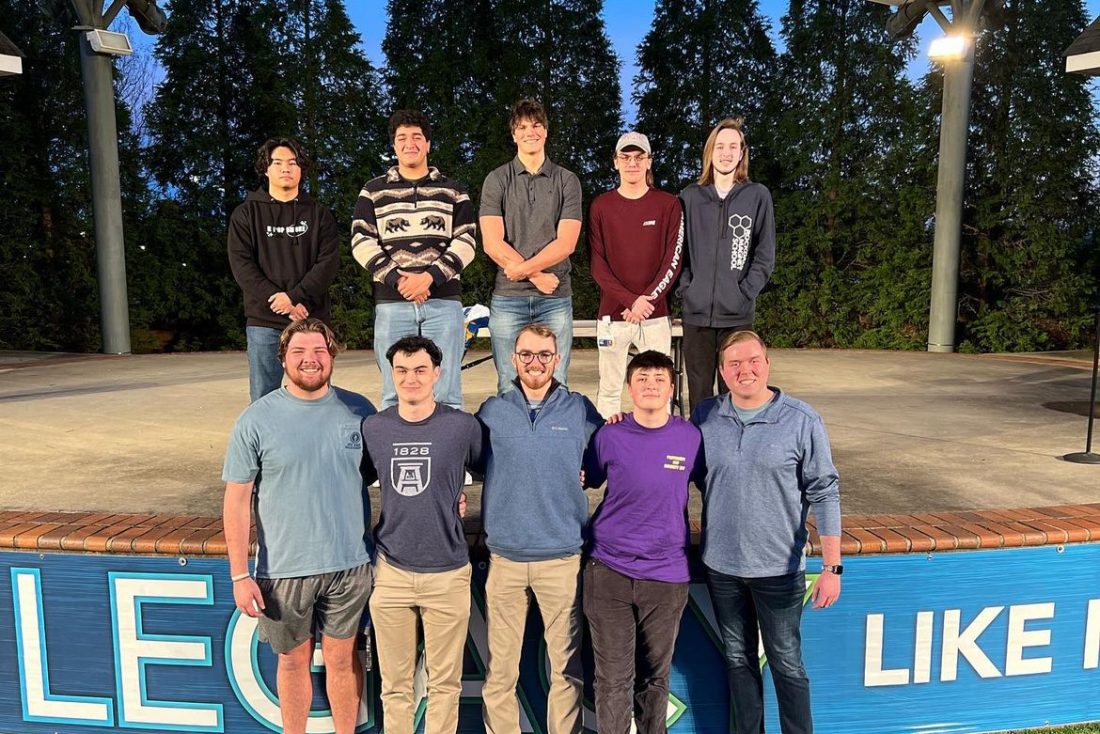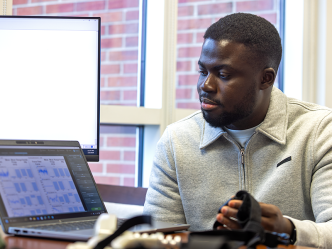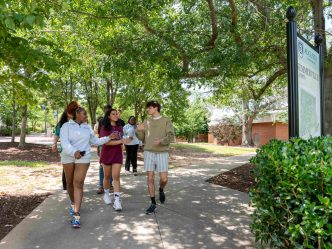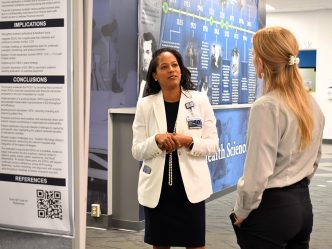The Augusta University Interfraternity Council (IFC) has received the Outstanding IFC Award from the North American Interfraternity Conference (NIC), placing AU alongside universities like Clemson University, Kansas State University, Ohio State University, the University of Tennessee, the University of Texas and Virginia Tech.
The award recognizes IFCs that excel in operations and positively impact their member chapters, their fraternity and sorority communities and host institutions.
By honoring Augusta University with the award, the IFC Awards Program commended AU’s excellent website and communications, record recruitment, academic achievement, revised governing documents and reestablished framework for effective peer governance.
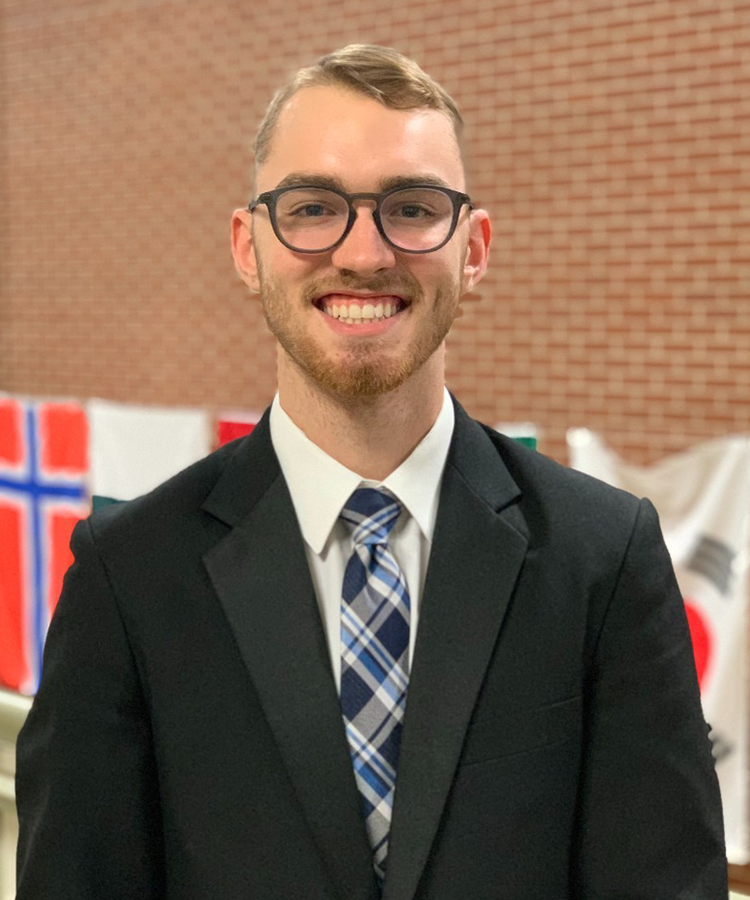
Tate Allen, last year’s president, noticed there was some ambiguity in their by-laws. Following standards set by the NIC, Allen and the rest of the local council diligently worked to make the language clearer so the fraternities had better guidance.
The IFC also made a major effort to expand its role to not only take care of the fraternities but to be more of community-involved student organization.
While winning the award came as a surprise, Allen said it is a testament to the work the IFC has been doing.
“I was kind of blown away,” said Allen. “I know we did a really good job, but I didn’t think we were going to get recognized nationally. So it was kind of surreal to get that email saying that we were honored.”
“For me, it was kind of a sense of positive recognition for everything that we have achieved over the last year,” said Ryan Reeves, current IFC president. “It showed that all the hard work we were putting in and the whole disaffiliation period was working in order to improve the state of Greek life here at Augusta University.”
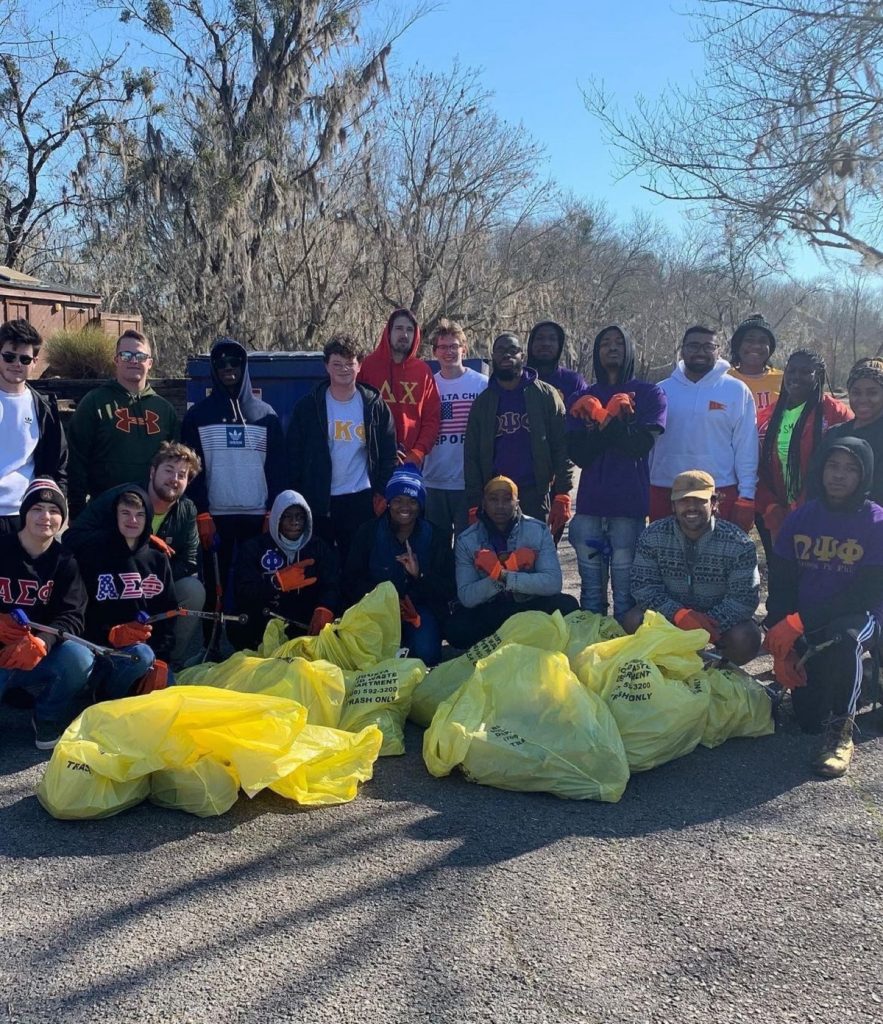
Roberto Aragon is the assistant director of Student Engagement and adviser to the IFC. He knows Augusta’s Greek life is slightly different than most major universities, but he is hoping to see a continued growth in the IFC in the upcoming years.
One big goal would be to have Greek housing for all fraternities and sororities. While that may be down the line, Aragon said he wants to make sure the fraternities and sororities continue to grow in the right way, in the classroom and in the community.
“I like to show and highlight that the Greek GPA is actually higher than the non-Greek GPA for the different cohorts of classes that have come in from the last five or six years,” said Aragon. “That’s a big deal. Then you have service hours and dollars that they have raised, and that’s gotten higher every year.”
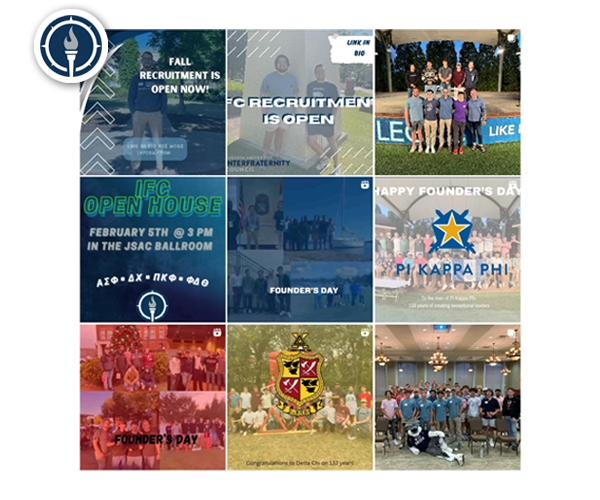
Allen would still like to see fraternity growth of about 10% for this year and increase programming, but he said it’s a challenge to get students to join Greek life.
“Not many people come to Augusta thinking of joining a fraternity. So the big pitch with the IFC is, ‘Hey are you interested in joining a fraternity?’ If they say no, you ask why not. This way, you can get a conversation going, and it may pique their interest,” said Allen.
The IFC at Augusta University – Alpha Sigma Phi, Delta Chi, Phi Delta Theta and Pi Kappa Phi – features six board members who need to go through a nomination before being appointed to a position on the council. The IFC is striving to make Greek life a thriving part of the student experience.
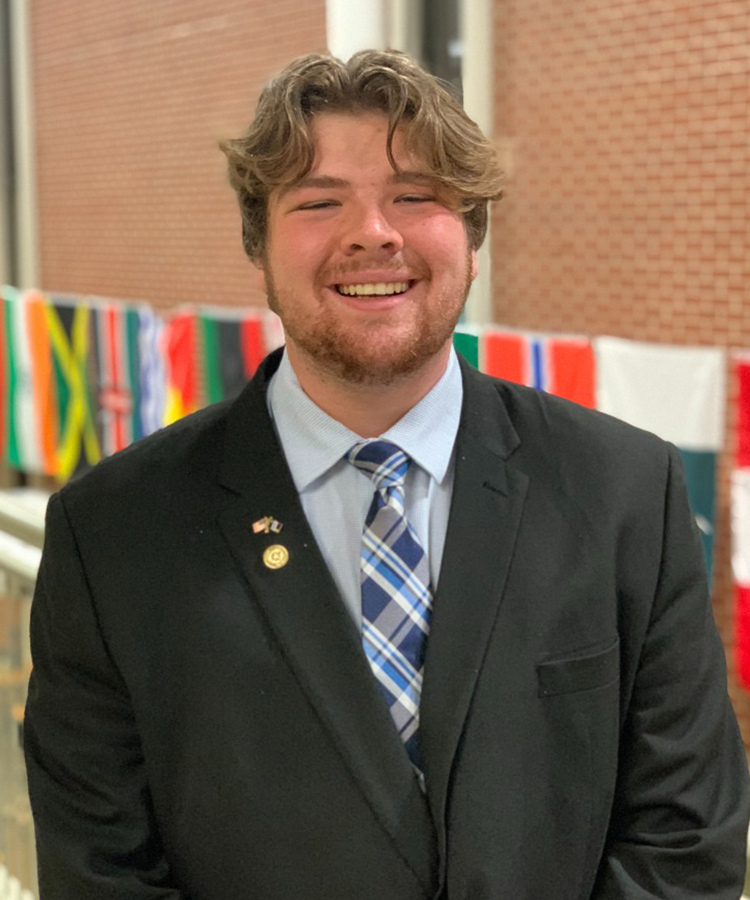
Reeves, a sophomore from Jackson, Georgia, belongs to one of the IFC’s member fraternities. Reeves admitted he wasn’t sure about even joining a fraternity when he arrived. Now, he sees firsthand all the benefits of being a part of a fraternity and the IFC.
“I met this group of guys that are in my chapter, and they really have become like a family away from home for me,” Reeves said. “I look at every single one of them as my brothers, and they’ve seen me in tough situations, and they’ve supported me. I can honestly say they will probably be in my life for the rest of my life.”
Overall, fraternity and sorority life at Augusta University is become more and more active. Starting this spring, members of Greek life are required to complete 15 service hours per semester, as well as participating in more events, both on campus and in the community.
“I like to show and highlight that the Greek GPA is actually higher than the non-Greek GPA for the different cohorts of classes that have come in from the last five or six years. That’s a big deal. Then you have service hours and dollars that they have raised, and that’s gotten higher every year.”
Roberto Aragon, assistant director of Student Engagement and adviser to the IFC
They are also looking to highlight Greek alumni and encourage those graduates to come back to campus on a regular basis.
“I definitely want to see that improve among all the chapters and just have alumni engagement and alumni be a bigger focal point,” Reeves said. “I do feel that’s an aspect that gets overlooked, and they are a vital resource because they do have a lot of good knowledge. Being in a fraternity shouldn’t just end after you graduate. I feel like it’s a lifelong commitment.”
 Augusta University
Augusta University
